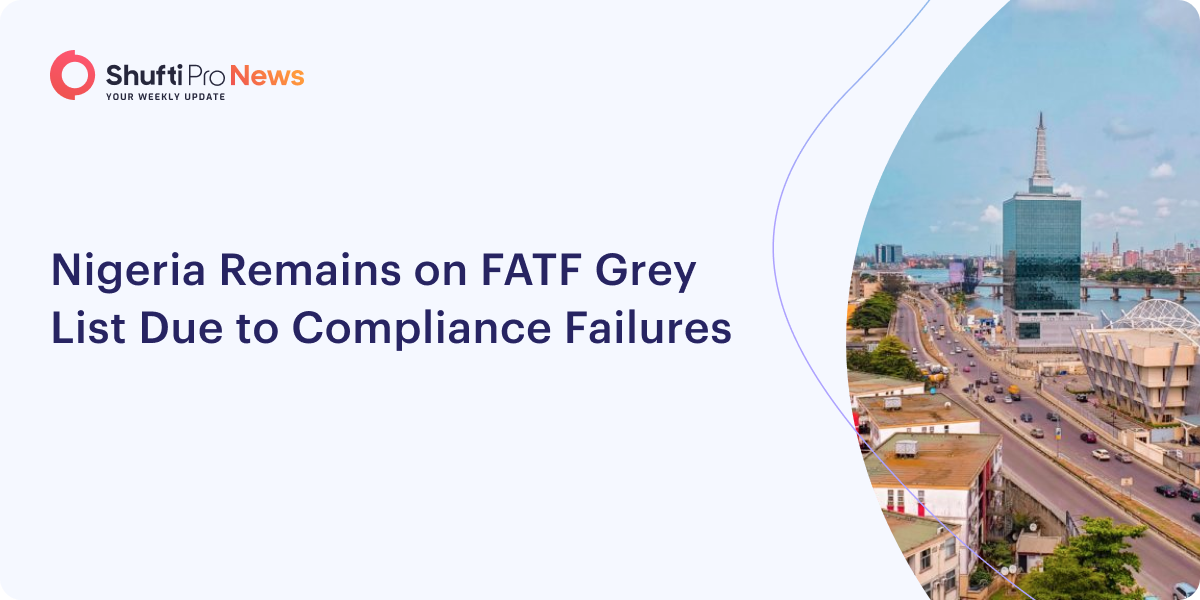News
11 Arrested for Illegal Offshore and Cross-Border Gambling Activities in Macau
11 people arrested along with businessman Alvin Chau in an investigation of bogus gambling scheme...
 Explore More
Explore More
News
Ransomware attacks increase as more people work from home
According to a study published by the cybersecurity firm, Proofpoint, there has been an increase ...
 Explore More
Explore More
News
Aussies Lost Record-breaking $851 million During COVID-19: ACCC Reports
Amid the pandemic, Australians lost a record-breaking amount of $851 million in 2020. According t...
 Explore More
Explore More
News
FATF and EU Delist Bahamas from AML Blacklist
European Union has finally removed Bahamas from its AML blacklist, right after FATF has delisted ...
 Explore More
Explore More
News
Man arrested for money laundering offenses related to COVID-19
A 39-year-old Singaporean man has been apprehended for his suspected involvement in money launder...
 Explore More
Explore More
News
Banks Introduce Confirmation of Payee to Tackle Fraud
The Confirmation of Payee (CoP) system was launched in October 2018 but implementation was delaye...
 Explore More
Explore More
News
GFI Study Reveals Weak AML/CFT Measures in Latin America and the Caribbean
The latest study by Global Financial Integrity (GFI) revealed that the Caribbean and Latin Americ...
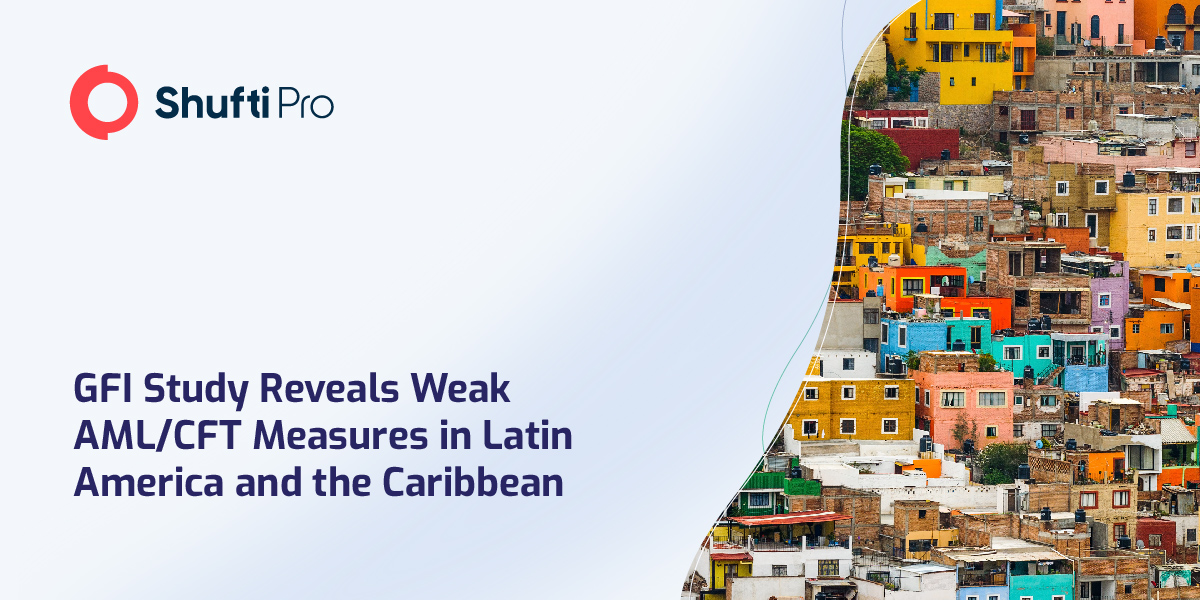 Explore More
Explore More
News
Turkey’s Regulatory Authorities Oblige Rigid Crypto Licensing Measures
Turkey’s Regulatory Authorities stated they will develop rigid regulations for crypto service pla...
 Explore More
Explore More
News
Russians Turn To Crypto As the West Imposes Financial Sanctions
Data has shown that Russians are turning towards transactions in cryptocurrency as a result of we...
 Explore More
Explore More
News
1.6M Unemployment Claim Filers Exposed Due to Data Breach
The Washington State Auditor’s Office has investigated an incident that has exposed the personal ...
 Explore More
Explore More
News
Victor Fredung Warns Businesses about the Rising Cybercrimes During Halloween
Halloween is one of the most awaited festivals throughout the year. While people plan different t...
 Explore More
Explore More
News
Vietnam Govt to Introduce Crypto Research Group to Evaluate Policy
Vietnam’s Ministry of Finance has plans of establishing a research group with the aim of studying...
 Explore More
Explore More
News
Economic and Financial Crimes Commission (EFCC) Notifies Estate Agents of Anti-Money Laundering Procedures
The Economic and Financial Crime Commission (EFCC) has instructed estate agents in Port Harcourt ...
 Explore More
Explore More
News
SEC Enforces Srilankan Compliance Officers To Conduct Adequate AML Measures
The Security Exchange Commission of Sri Lanka (SECS) and Colombo Stock Exchange (CSE) recently ar...
 Explore More
Explore More
News
Regulators Criticise Deutsche Bank over Forex Mis-selling Probe
ECB and BaFin have told Deutsche Bank that they are “not satisfied” with its probe into mis-selli...
 Explore More
Explore More
News
FINTRAC Fines Two B.C. Real Estate Brokerage Firms for AML Violations
The Financial Transactions and Reports Analysis Centre of Canada (FINTRAC) has recently fined two...
 Explore More
Explore More
News
COVID-19 has Made Cybercrime More Structured
During the COVID-19 pandemic, there has been immense growth in the opportunities for cyber-relate...
 Explore More
Explore More
News
California to Reopen its Economy with COVID Vaccine and Testing Requirements
After more than a year of COVID-19 restrictions, the State of California to finally reopen its ec...
 Explore More
Explore More
News
Philippines AMLC Releases New Study for Suspicious Transactions Linked to Casino Junkets
The Philippines AMLC has officially published the latest study on suspicious transactions linked ...
 Explore More
Explore More
News
CBUAE Issues New AML/CTF Guidelines for the Insurance Sector
The Central Bank of the UAE (CBUAE) has announced new Anti Money Laundering and Countering Terror...
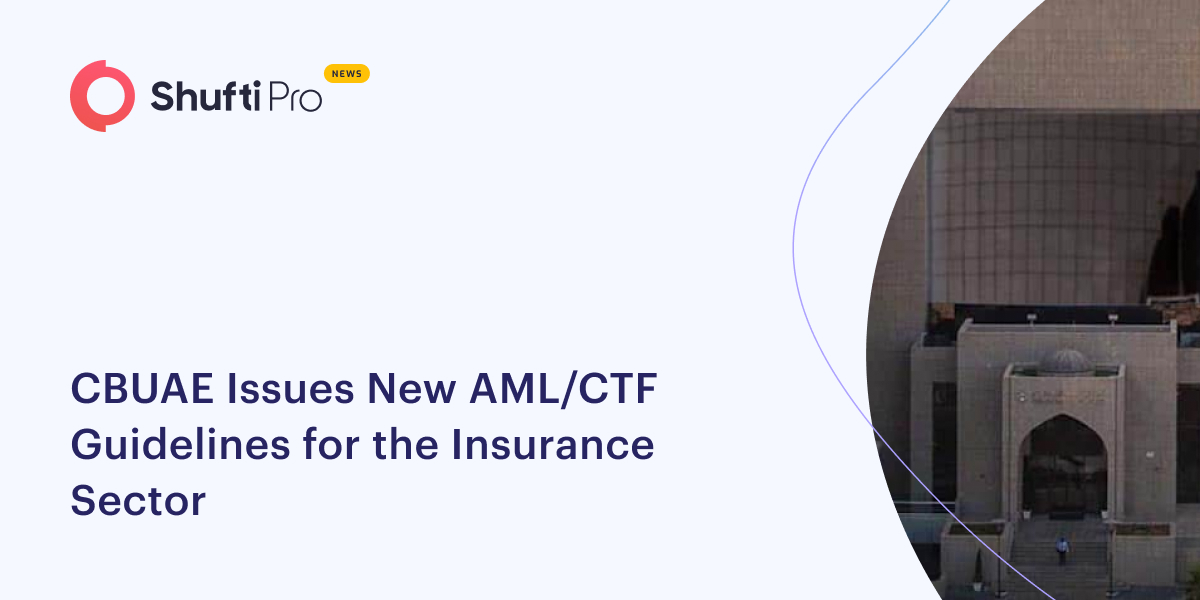 Explore More
Explore More
News
UK Authorities Accuse Attorneys of Failure in Combating Financial Crimes
The UK regulatory authorities asserted that new data revealed prosecutors inadequately comply wit...
 Explore More
Explore More
News
USAA Fined $140 Million for Inadequate Anti-Money Laundering Measures
Two federal regulatory authorities have fined USAA a collective $140 million for failure to imple...
 Explore More
Explore More
News
SRA, India’s FIU, and the ACMA Issue Non-Compliance Fines Exceeding $2 Million
The Solicitors Regulation Authority [SRA], India’s Financial Intelligence Unit [FIU], and t...
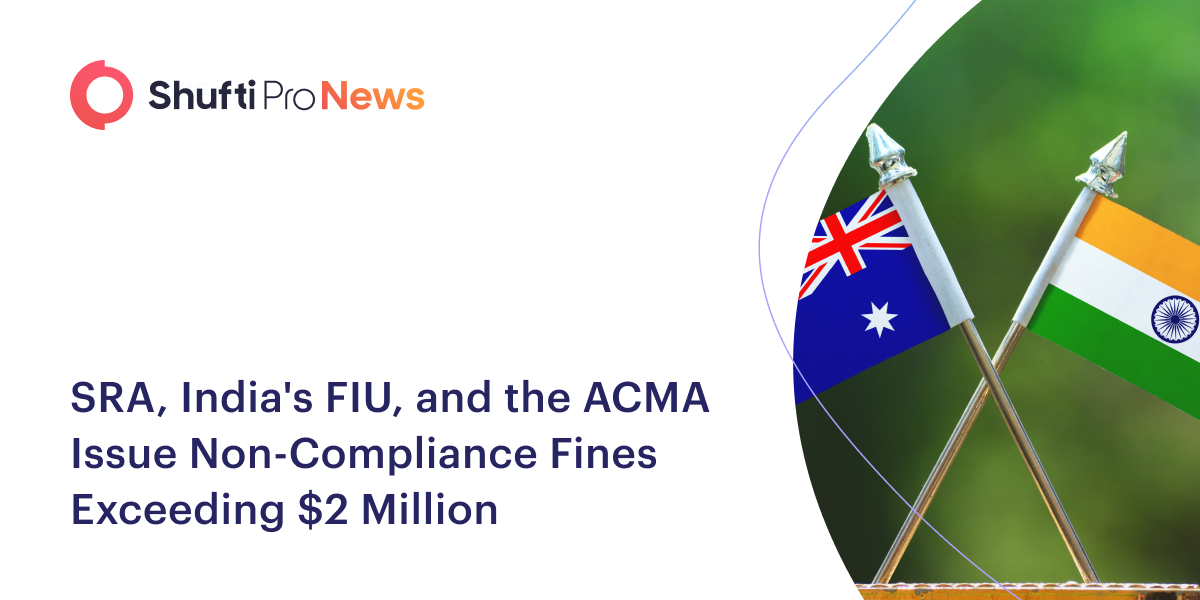 Explore More
Explore More
News
Cambodia Seeks Exit from FATF Grey List in Early 2023
Cambodia has finally invited the Financial Action Task Force (FATF) to evaluate its progress in f...
 Explore More
Explore More
News
Sri Lankan AMLO Fines a Bank and Two Finance Firms for Non-Compliance
Approximately two million rupees worth of fines were imposed on three financial institutions in S...
 Explore More
Explore More
News
Japan to Enforce Strict Anti-Money Laundering Laws on Cryptocurrency
A stringent set of anti-money laundering measures will be implemented in Japan starting June 1st,...
 Explore More
Explore More
News
Abu Dhabi Regulatory Authority Fines Pyypl $486,000 for Violating Money Laundering Laws
Abu Dhabi Global Market (ADGM) financial regulatory authority fined $486,000 to digital UAE bank ...
 Explore More
Explore More
News
UAE Issues $1.048 Billion Worth of Fines for Money Laundering & Terrorism Financing
UAE’s Executive Office to Combat Money Laundering and Terrorist Financing has claimed to collect ...
 Explore More
Explore More
News
After China, Japanese Officials Considering to Introduce Digital Currency too
China has begun trials for its digital assets and issued 10 million yuan last week. The efforts o...
 Explore More
Explore More
News
EU Strengthens Capacity of CSOs to Combat Money Laundering & Improve Governance
The European Union (EU) is working on boosting the capacity of more than 200 Civil Society Organi...
 Explore More
Explore More
News
IRS Criminal Investigation Uncovers Approx. $10 Billion Worth of FinCrime
IRS-CI FY 2021 highlighted $2.19 billion in tax fraud, $8.18 billion in financial crimes, 1497 wa...
 Explore More
Explore More
News
Deutsche Bank Pays $130M to Avoid Corrupt Payment Charges
Deutsche Bank, a German investment bank, has agreed to pay the fine of $130 million to settle the...
 Explore More
Explore More
News
West Midlands Lose Approximately £8 Million to Employee Fraud in 2022
Business advisors RSM UK has revealed West Midlands as a hotspot for employee fraud. The region h...
 Explore More
Explore More
News
Prosecutors Raise Questions About KYC/AML Against Cryptocurrency Mixers
According to the prosecutors and financial regulators, cryptocurrency mixers are reportedly being...
 Explore More
Explore More
News
FCA Raises Major Concerns about Investing in Non-Fungible Tokens (NFTs)
The FCA highlighted the significant risk associated with the Non-Fungible Tokens (NFTS) which may...
 Explore More
Explore More
News
FCA Spends $650K to Beef up its AML Control for the Crypto Industry
FCA spends $670,000 on training cryptocurrency exchange staff along with strengthening AML requir...
 Explore More
Explore More
News
Growing List of Countries are Introducing Regulations on Crypto
Ukraine’s Parliament officially adopted the Draft Law On Virtual Assets. Prior to this, cryptocur...
 Explore More
Explore More
News
Internet infrastructure industry plans on ensuring internet trust amidst COVID-19 outbreak
As a global crisis emerges due to the Coronavirus outbreak, and global population practices socia...
 Explore More
Explore More
News
Hawaii introduces facial recognition for COVID-19 airport screening
Hawaii transportation authorities on Monday revealed the latest element of their attempts against...
 Explore More
Explore More
News
The Commodity Futures Trading Commission to Regulate the Crypto Market with “Full Oversight Capabilities”
The chairman of the CFTC discussed that his agency would regulate the crypto market. Digital Com...
 Explore More
Explore More
News
Taiwan’s Security Watchdog is Set to Regulate Local Crypto Industry to Prevent Money Laundering
Taiwan’s top financial regulator is set to become the primary oversight body to monitor the...
 Explore More
Explore More
News
Crypto Services Approved Under AMLD5 Regulations by the Dutch Central Bank
De Nederlandsche Bank NV (DNB) has permitted AMDAX BV the Central Bank of Netherlands to operate ...
 Explore More
Explore More
News
Kenya Accuses Two Leading African FinTech Firms of Operating Without Licenses
Two of Africa’s top FinTech companies have been accused by the Kenyan central bank of alleg...
 Explore More
Explore More
News
FATF Claims Golden Visa Programs Raise Financial Crimes Activities
The international regulatory body, Financial Action Task Force (FATF), reported that Citizenship ...
 Explore More
Explore More
News
France to Consider Amendment Obliging Crypto Firms to Obtain Licenses
In January 2023, the French Parliament will consider the amendment to cancel the favorable treatm...
 Explore More
Explore More
News
Money Remittance in Singapore at the Highest Risk of TF
The money remittance sector and banking sector in Singapore has become the highest target for cri...
 Explore More
Explore More
News
EU Removes Iraq From List of High-Risk Money Laundering Countries
Iraq has been de-listed from the EU’s list of high-risk countries for money laundering and terror...
 Explore More
Explore More
News
European Parliament Members Adopt New Recommendations to fight Tax Fraud and Money Laundering
The parliament members adopted a comprehensive set of regulations stemming from the previous reco...
 Explore More
Explore More
News
Giaba Trains BDC Operators for Money Laundering & Terrorist Financing
GIABA (Inter-Governmental Action Group against Money Laundering in West Africa) has started a thr...
 Explore More
Explore More
News
FATF Examines Technology use in Making AML/CFT More Effective
FATF has recognized the importance of combining human input and manual review with automation for...
 Explore More
Explore More
News
The UK’s NCA Establishes New Unit to Clamp Down on Corrupt Elites & Money Launderers
The UK’s National Crime Agency (NCA) created a new unit with the aim to target and investigate co...
 Explore More
Explore More
News
Singapore, Cyprus, and the US Expedite Efforts to Combat Financial Crimes Effectively
Singapore, Cyprus, and the US are stepping up their efforts to curb financial crimes while aiming...
 Explore More
Explore More
News
2 Men & 5 Companies to Face Trial for €20 Million Money Laundering Case
A magistrate has found substantial evidence of two Libyan men and five companies involved in laun...
 Explore More
Explore More
News
EU to Introduce Uniform Legal Framework for Crypto Assets
The EU is negotiating on new rules for introducing a uniform legal framework for crypto assets wi...
 Explore More
Explore More
News
Tech Analysts Say Elgin Data Breach May Prove “Devastating” for Those Vulnerable to Identity Fraud
Technology experts raise questions about the lack of transparency of the municipality in dealing ...
 Explore More
Explore More
News
SEC Warns Wall Street to Enhance AML Systems
US regulatory authority, the Security and Exchange Commission (SEC), warns Wall Street brokers of...
 Explore More
Explore More
News
Melbourne Casino Crown Faces New Money Laundering Scandal
Crown’s licence for its Sydney casino has been suspended after an investigation revealed it facil...
 Explore More
Explore More
News
MFSA, SEC, Along with FCA Introduces New AML Guidelines for Money Laundering Officers and Virtual Asset Service Providers
The Malta Financial Services Authority (MFSA), Securities and Exchange Commission (SEC), and Fina...
 Explore More
Explore More
News
The Next Big Step- Blockchain-Based E-voting
A Japanese firm, Layer X labs, has decided to work on the development of voting electronically by...
 Explore More
Explore More
News
Israel Enforces New Regulations for the Transfer of Digital Currency
The new digital currency regulations will allow Israeli banks to profit from cryptocurrency tradi...
 Explore More
Explore More
News
German FinTech N26 Notches $100M Amid COVID-19 Uncertainty
A funding deal for an extra $100 million has been closed by a German challenger bank N26 as it pr...
 Explore More
Explore More
News
Hong Kong Police Reveals 822 Romance Scams Occurred in 1H of 2021
The Hong Kong Police has advised the public to remain cautious when meeting people online due to ...
 Explore More
Explore More
News
FATF to Blacklist Uganda Over Money Laundering
The Executive Director of the Finance Intelligence Authority, Sydney Asubo stated that the FATF h...
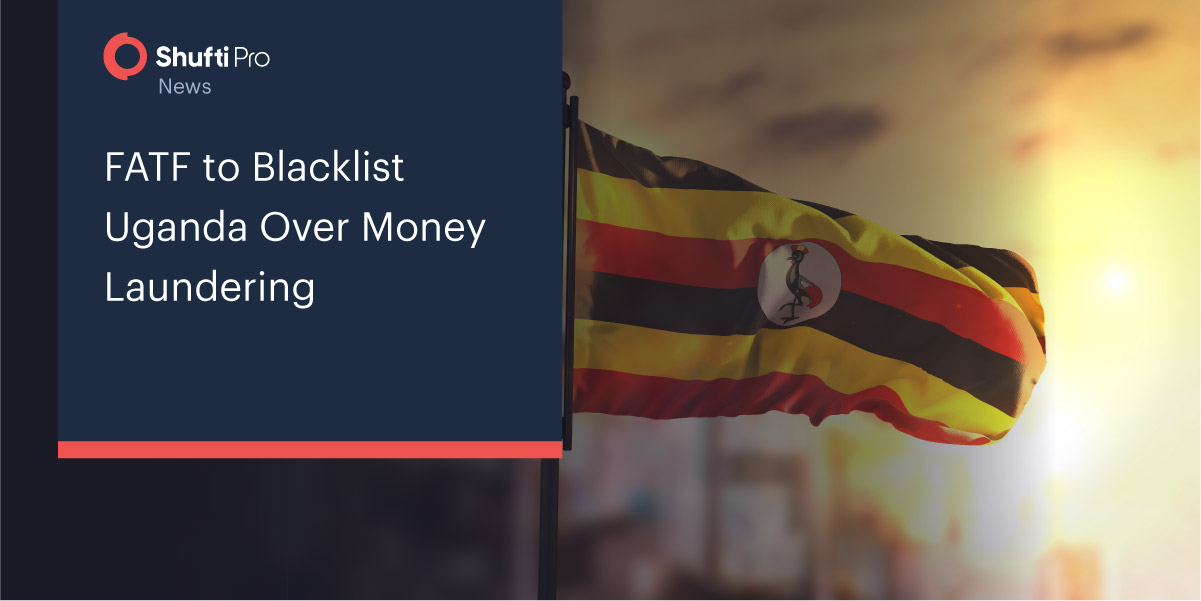 Explore More
Explore More
News
Dark Web Becomes a Haven for Insurance Fraud
Dark Web has recently become a growing market for unemployment insurance fraud and fraudsters can...
 Explore More
Explore More
News
US Imposes Sanctions on Russian-backed Iranian Oil Smuggling & Money Laundering Network
The US has imposed sanctions on a Russian-backed oil smuggling and money laundering network for I...
 Explore More
Explore More
News
Chinese Firms to Test Crypto Opportunities in Hong Kong
Chinese Security companies and banks are attracted by Hong Kong’s retail trading in Bitcoin and E...
 Explore More
Explore More
News
Court Dismisses Appeal in New Zealand’s First Criminal Prosecution Under AML/CFT Act
Court of Appeal dismisses an appeal on 1st July against New Zealand’s first criminal prosecution ...
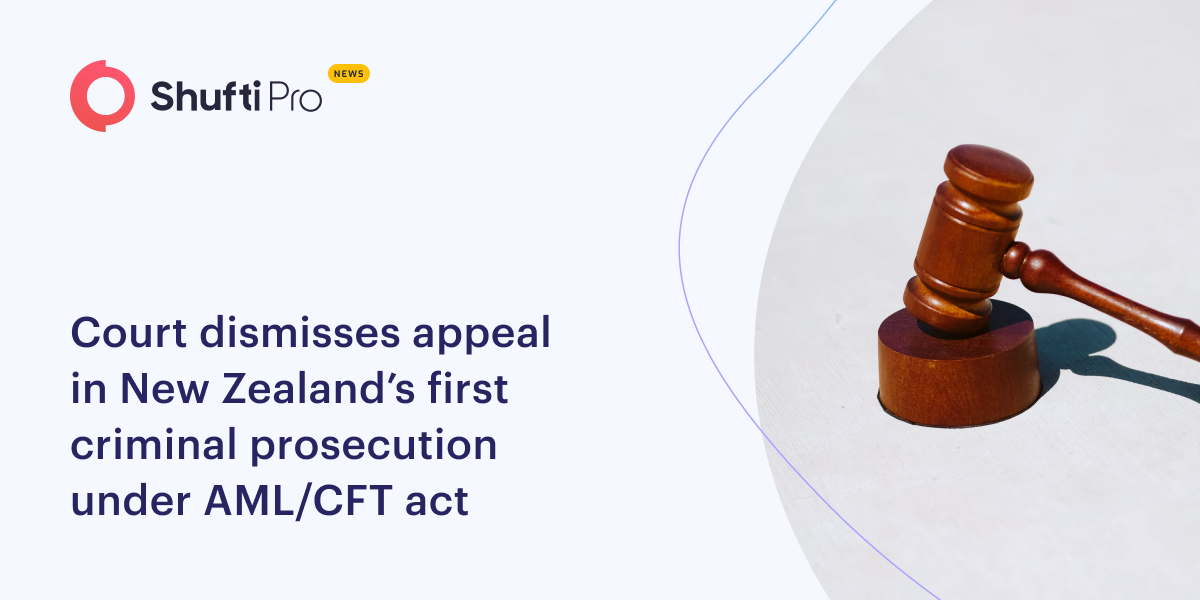 Explore More
Explore More
News
Turkey Set to Toughen AML Laws on Crypto Asset Platforms
Turkey is designing new and stricter obligations to prevent crypto-asset platforms from money lau...
 Explore More
Explore More
News
Shufti is nominated for ‘Oustanding Product/ Service’
Global business excellence awards nominated Shufti for the category of outstanding product/ s...
 Explore More
Explore More
News
US Accuses Crypto Firms for Serving as Money Laundering Hub
The US Treasury’s department targeted the crypto mixers to combat internationally operated financ...
 Explore More
Explore More
News
Philippines AML Council Adds POGO to its Non-Compliance List
In its efforts to fight money laundering and terrorist financing, AMLC has added third POGO to th...
 Explore More
Explore More
News
Senate Reveals a 12-Year-Old Loophole Targeted by Americans to Cheat IRS
Offshore tax loopholes are safe havens for wealthy Americans to cheat the Internal Revenue Servic...
 Explore More
Explore More
